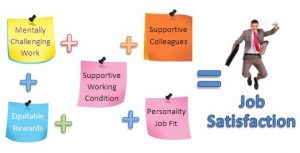When a person has a conflict with someone, it’s usually not a good thing for the most part. It hinders progress in getting a project done all because of a petty argument on whose opinion is right. During conflicts, various techniques are used to try to win the argument. However, both parties often neglect the goal of discussions or arguments, which is to improve on each other’s ideas and even relationship among themselves.
In Michael Mama’s article, he brought up an idea that mutual understanding and respect could resolve conflict itself. I was fascinated by his explanation of the impact having good relationships with others can bear in overcoming differences in opinions. His article reminded me of the topic “conflict-handling strategies” and how problem-solving was the best way to resolve a conflict while also maintaining a good relationship with each other. This is because when people have good relationships with each other, they are more willing to work through their points and come to an understanding with each other. Both parties are willing to keep an open mind for reflection, and over time, both parties would come to appreciate each other’s perspective. Going back to the conflict-handling strategies, I realized that they are not all based on maintaining good relationships. Most of the strategies used, such as forcing, avoiding, yielding and compromising, involve the other party “losing” in a sense. This is especially true for the compromising strategy. Though it might sound fair for both parties to give up on part of their arguments, the end result is that the problem would still not be addressed sufficiently and the relationship between both parties are compromised. There are tons of examples out there about partnerships dissolving, businesses crumbling due to conflicts, and this is all because of certain individuals who are incapable of pulling themselves out of the situation and taking a look at the big picture.
In conclusion, although it does not feel good to lose or to give up own points in a conflict, if we change our perception towards the conflict and focus on the relationship with one another, dealing with such conflicts would be much easier. Michael Mamas conveyed this message in a very concise, beautiful way and said, “This is called the art of communication. To communicate is to commune. And to commune is all about the relationship.”
https://www.entrepreneur.com/article/282860
1. Langton, Robbins, Judge, Organizational Behaviour, 7th edition, p. 316


